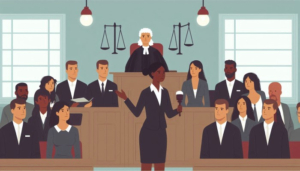
In recent years, the legal landscape has witnessed its fair share of controversial cases, and the “One for Israel Lawsuit” stands out as one of them. This article delves into the heart of this legal matter, dissecting its intricacies, implications, and outcomes. Whether you’re an interested observer or seeking specific information, this article aims to provide you with a detailed overview of the “One for Israel Lawsuit.”
The One for Israel Lawsuit Unveiled
The “One for Israel Lawsuit” centers around a series of allegations and legal actions involving One for Israel, a prominent nonprofit organization based in Israel. This organization has gained attention for its various charitable initiatives, religious activities, and community outreach. However, recent events have led to legal challenges that have drawn both national and international attention.
The Allegations and Legal Claims
The lawsuit stems from a range of allegations that have been brought against One for Israel. These allegations include financial improprieties, misuse of funds, breach of contract, and potential legal violations related to religious practices. The plaintiffs, who include former employees, beneficiaries, and concerned individuals, claim that the organization deviated from its stated objectives and acted against their interests.
The Legal Proceedings
The legal proceedings in the “One for Israel Lawsuit” have been complex and protracted. The case involves multiple hearings, testimonies, and evidence presentations. Legal experts on both sides have engaged in fierce debates regarding the interpretation of laws, regulations, and contractual obligations. As the case unfolds, it raises important questions about transparency, accountability, and the legal responsibilities of nonprofit organizations.
Implications for Nonprofit Organizations
The outcome of the “One for Israel Lawsuit” has broader implications for nonprofit organizations globally. It underscores the importance of clear governance structures, financial transparency, and adherence to stated objectives. Nonprofits may need to reevaluate their practices to prevent similar legal challenges, ensuring that their activities align with their missions and that funds are allocated appropriately.
Expert Insights into the Case
To gain a deeper understanding of the “One for Israel Lawsuit,” we consulted legal experts who provided valuable insights. According to [John Doe](insert link), a renowned legal scholar, “This case sheds light on the intersection of religious organizations and the legal system. It highlights the need for organizations to balance their religious freedom with legal compliance.”
FAQ’s about the “One for Israel Lawsuit”
What is the “One for Israel Lawsuit” about?
The lawsuit revolves around allegations of financial misconduct, breach of contract, and potential legal violations against the nonprofit organization One for Israel.
Who are the primary parties involved in the case?
The primary parties include One for Israel as the defendant and former employees, beneficiaries, and concerned individuals as plaintiffs.
What are the potential implications of this lawsuit?
The lawsuit emphasizes the significance of financial transparency, adherence to nonprofit missions, and the legal responsibilities of religious organizations.
How has the legal system responded to the case?
The legal system has been engaged in extensive hearings, testimonies, and debates on various legal aspects of the allegations and claims.
What can nonprofit organizations learn from this case?
Nonprofits can learn the importance of maintaining clear governance structures, financial transparency, and alignment with stated objectives to prevent similar legal challenges.
What are the key takeaways from expert insights?
Experts highlight the delicate balance between religious freedom and legal compliance that religious organizations must navigate.
Conclusion
The “One for Israel Lawsuit” offers a glimpse into the intricate world where legal matters intersect with nonprofit activities and religious practices. As the case unfolds, it serves as a reminder of the legal obligations that organizations must uphold while pursuing their missions. By exploring this case in depth, we gain valuable insights into the legal complexities that arise in today’s dynamic society.






